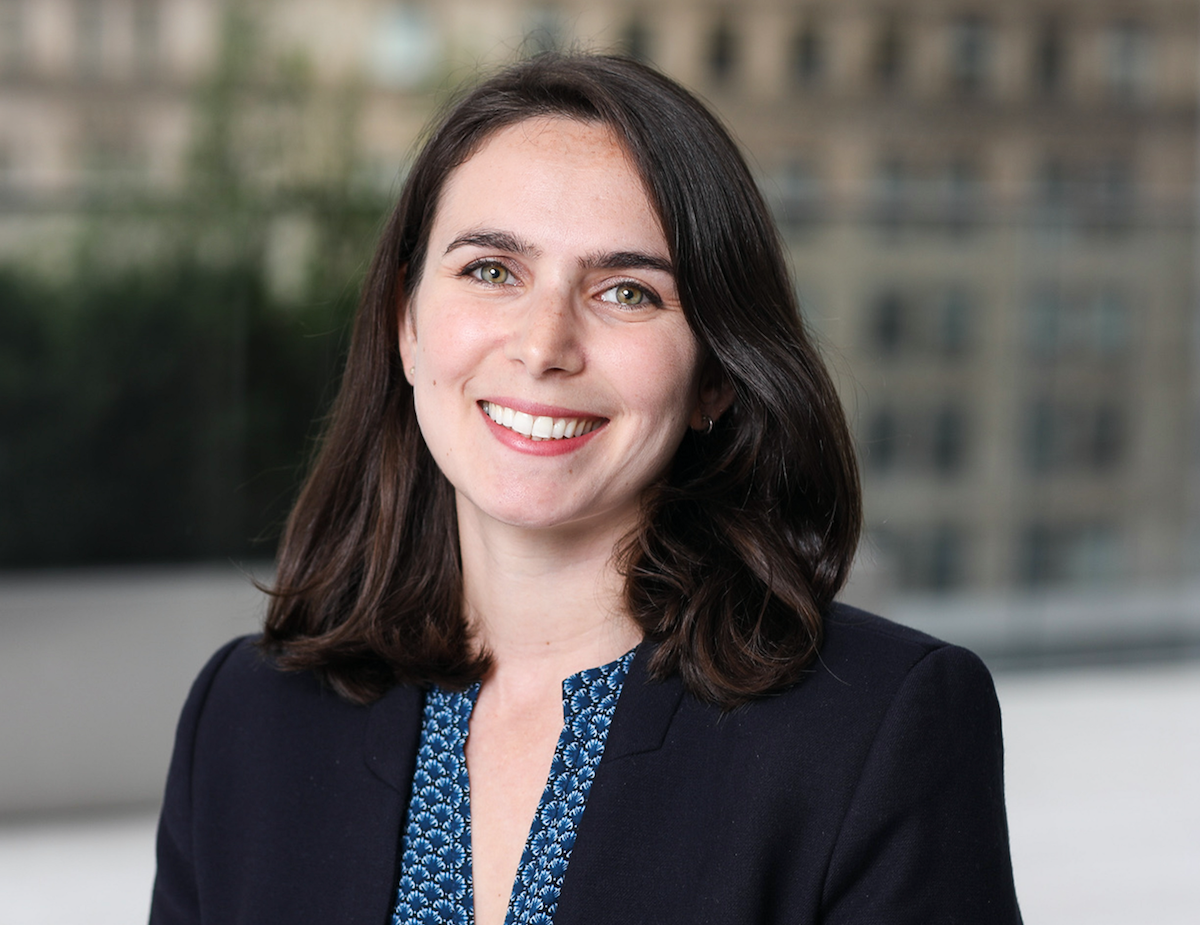What was your first job?
After the coffee shops, dance schools, and libraries I worked at in my teens, my first job after college was teaching English at a small school in Nicaragua. The experience exposed me to global inequality at a human level, and I knew I wanted to do work that helped people in developing countries gain economic security. When I came back to the U.S., I began managing international development projects in Latin America, South Asia, and East Africa focused on raising incomes in rural areas by upgrading agricultural value chains.
When did you know you wanted to work in finance/business?
While working in international development, I realized that aid and philanthropy alone would not be able to eliminate poverty. Achieving real progress would require the resources and skills of the private sector. I also felt strongly that the best and longest-lasting solutions to social problems would come from local entrepreneurs – people who know their communities inside and out and who are committed to building enduring businesses.
When did you first discover the concept of Impact Investing?
In 2011, I was consulting on market systems approaches for a small enterprise investment fund run by Oxfam America. One of the managers of the fund, Mara Bolis, suggested that I check out impact investing, given my emerging views on the role of private sector capital in addressing social challenges like poverty and gender inequality.
I was about to start graduate school and was able to take courses and have conversations that gave me deeper insight into impact investing, which I pursued through further consulting work and eventually a role on the research team at the Global Impact Investing Network.
What’s one exciting development you and your team have in the pipeline?
One exciting project we have underway at Developing World Markets is focused on gender and the power dynamics that are embedded in the day-to-day processes of financial institutions.
We’ve been working with several of our portfolio companies and the gender specialists at Criterion Institute to assess how these dynamics are considered – for example, how can decision-making more meaningfully include women, and how can incentives be structured to prioritize gender equitable outcomes?
The results have yielded some fascinating insights into what is working well and what can still be strengthened. In many cases, we can see a clear business case for improving gender equity. For example, some companies have already designed gender-focused products, but they’ve struggled to roll them out through their typical channels. By considering access and removing bias from origination and distribution channels, they can boost the success of those new products and achieve more effective inclusion of women clients.
We’ll be releasing a summary report to share more insights from this work soon and continuing to work with the portfolio companies to implement the recommendations it has generated.
What was the most interesting impact deal (from any team across Asia/Pacific) in the past 12 months?
We made a loan this year to EVN Finance, a non-banking finance company in Vietnam. The company specializes in financing the energy sector, with a particular emphasis on renewable energy development. In addition to financing the country’s small and medium-sized enterprises to drive inclusive economic growth, EVN Finance provides renewable energy loans – for example, for small-scale rooftop solar projects. This is an exciting example of a trend we’re seeing more of and looking to expand: financial inclusion as a vehicle for climate change mitigation and adaptation.
On the private equity side, we recently made a partial exit through an IPO of one of our investees in India, Suryoday Small Finance Bank. Exits, especially via IPO, are still relatively rare in the impact investing space. Suryoday is highly focused on reaching underserved customers. A recent survey by 60 Decibels found that 70% of their clients don’t have access to good alternatives, and 85% said their quality of life has improved as a result of the services they get from Suryoday. We still have an active equity stake and are excited to see this company continue to build out its product suite while maintaining this emphasis on positive social impact.
Name one high impact company (globally) that investors should keep their eye on?
We’re tracking companies that apply the principles of inclusive finance to reach new underserved segments. For example, we have yet to see scaled solutions addressing the needs of forcibly displaced people – a group that now includes more than 100 million people globally. Like other vulnerable populations, they need financial services that can help them manage cash flows and sustain livelihoods. Displaced people usually can’t take their credit history with them, and they face a lot of barriers ranging from discrimination to lack of official identification.
One of our private equity investees is a microfinance institution in the Republic of Georgia called Crystal. Crystal was set up by people who were internally displaced by conflict in the Abkhazia region in the 1990s and initially served exclusively IDPs. It has since applied the same principles of unsecured lending to reach other vulnerable segments. For example, Crystal has built a marketplace to provide input finance and education to smallholder farmers. As they look to transition to a deposit-taking microbank in the near future, I’m excited to see Crystal continue to expand this model of inclusive finance.
What’s your vision for impact investing in 5 years time?
So much is happening in the area of benchmarking impact data right now. I think in five years we will actually be able to compare investments based on their impact and be much more efficient with our capital as a result. I also envision more intersectionality in impact goal-setting, meaning that a given investment will be able to address multiple interconnected issues at once – such as economic inclusion, health, gender equity, climate resilience, and displacement. We can’t be afraid of these complexities if we want to make real change.

